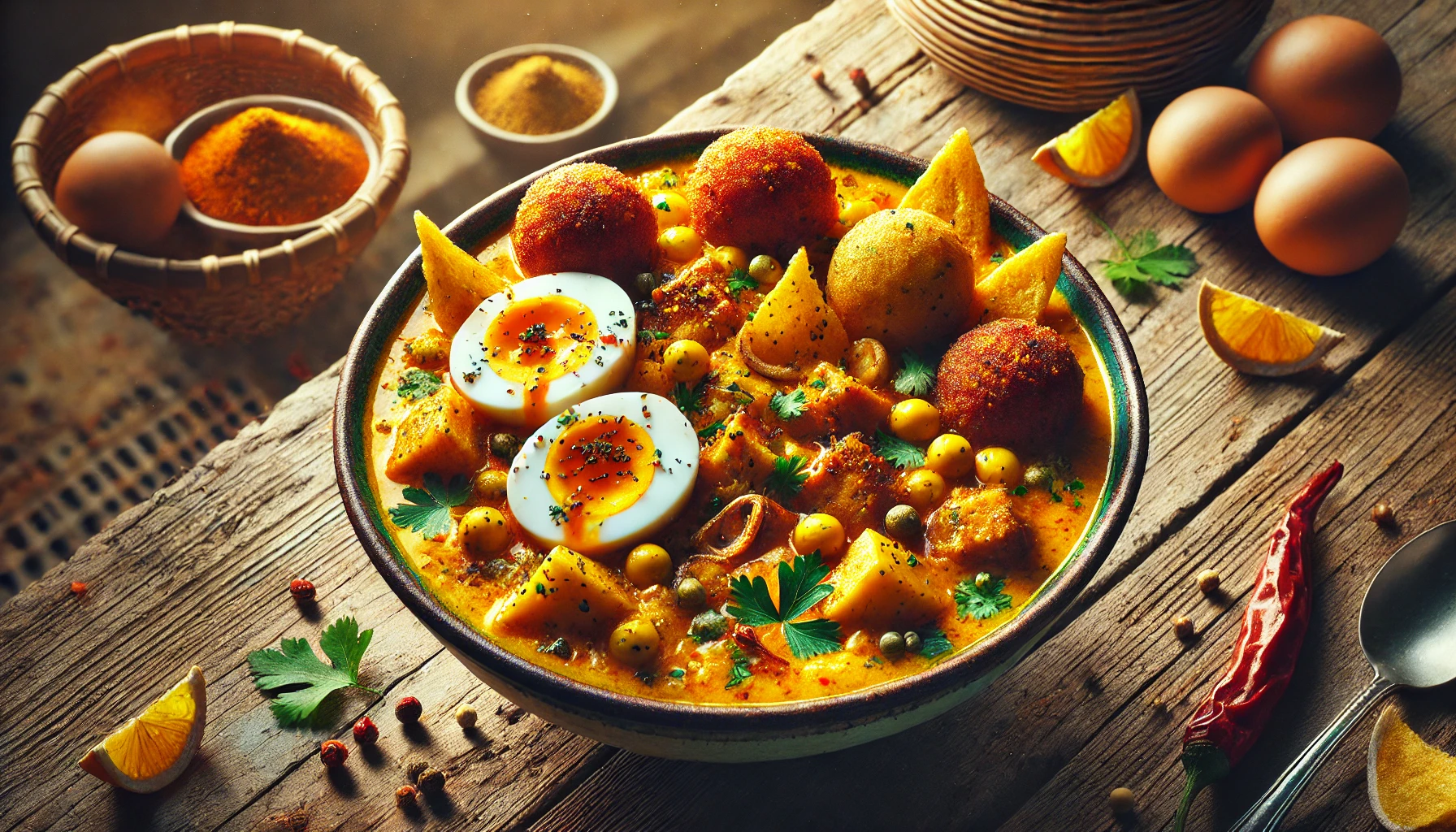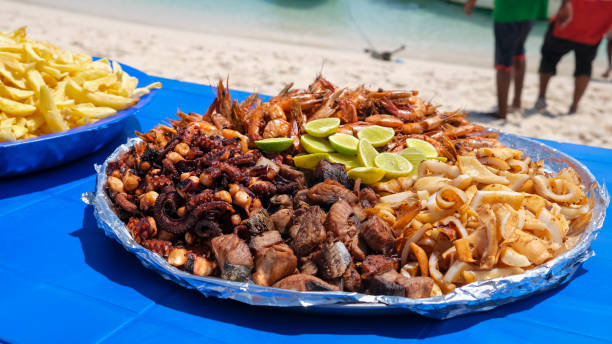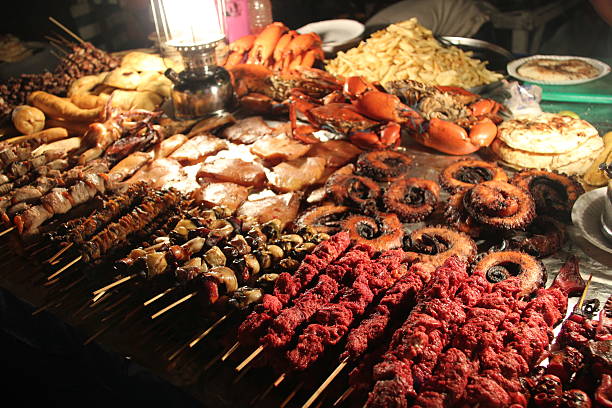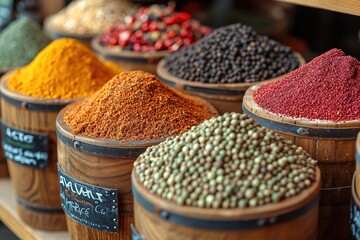Zanzibar is popularly known for its stunning beaches, rich history and of course it’s food.
Zanzibar’s food is a melting pot of African, Arab, Indian, and European influences as the island’s strategic position along ancient trade routes brings together these diverse cultures.
With each of these cultures contributing their own ingredients, spices, and cooking techniques to the local food scene.
It is also known as the “Spice Island” due to its long history of spice production. Cloves, cinnamon, cardamom, nutmeg, and black pepper are some of the key spices that flavor many Zanzibari dishes.
The island’s spice farms are a popular tourist attraction, offering tours where you can learn about the cultivation and use of these spices.
To truly appreciate the island, you must dive into its culinary world and experience Zanzibar food like a local. Before we go into that, check out this benefits
The benefit of Experiencing Zanzibar Food Like a Local
1. Experience the culture
Food is a key part of any culture, and by experiencing the local cuisine, you connect with the island’s history, values, and community in a meaningful way.
When you eat like a local, you gain deeper insight into the daily lives and traditions of Zanzibaris.
2. Support for local businesses
When you choose to dine at local restaurants, street vendors, and family-run establishments, you’re directly supporting the local economy.
This not only helps sustain small businesses but also ensures that your money benefits the local community rather than large, international chains.
3. Learn Traditional Cooking Techniques
If you’re big about learning food recipes to either recreate or just enjoy, then this is your chance to explore Zanzibar’s food recipe.
By engaging in activities like cooking classes or visiting spice farms, you’ll learn how the Zanzibar food is made and is being passed through generations.
This hands-on experience gives you valuable skills and recipes that you can take home, allowing you to recreate authentic Zanzibar food in the comfort of your kitchen.
Let’s move on to how you can enjoy Zanzibar Food on your trip
How to Experience Zanzibar Food Like a Local
1. Start your day with a Traditional Zanzibar Breakfast
One of the most popular choices is Urojo, also known as Zanzibar Mix, a savory soup made with a rich blend of spices, potatoes, and coconut milk, typically served with crispy bhajias (fried dough balls), boiled eggs, and meat skewers.

This hearty dish is a staple for many Zanzibaris and is commonly found in small, local eateries across the island.
Just so you don’t end up eating the same meal for breakfast all through your stay, you can also give Mandazi a trial.
Mandazi is a slightly sweet, deep-fried dough infused with coconut, which pairs perfectly with a cup of strong Zanzibar coffee.
This coffee is often spiced with cardamom and cinnamon, providing a flavorful start to your day.
2. Indulge in Fresh Seafood by the Beach
Zanzibar’s location in the Indian Ocean means that seafood is a significant part of the local diet. To experience Zanzibar food like a local, you should indulge in some of the freshest seafood dishes available.
Visit one of the many beachfront restaurants or local shacks where you can enjoy grilled seafood while taking in stunning ocean views.

Popular dishes include Octopus curry, a rich and creamy curry made with tender octopus, and Samaki wa Kupaka, fish marinated in a mixture of coconut milk, lime, and spices, then grilled to perfection will leave you craving for more.
3. Enjoy Street Food at Forodhani Gardens
In the evening, make your way to Forodhani Gardens, a bustling waterfront park in Stone Town that transforms into a lively food market as the sun sets.

This is one of the best places to sample a variety of Zanzibar street foods.
A must-try is the Zanzibar pizza, a dish that resembles neither pizza nor a typical pastry.
It’s a thin dough filled with a mix of ingredients like minced meat, vegetables, eggs, and cheese, folded into a parcel, and then fried on a hot griddle.

For those with a sweet tooth, there are versions filled with Nutella and bananas.
4. Sign up for a Spice Tour
Zanzibar is often referred to as the “Spice Island,” and for good reason. The island’s spice farms produce some of the world’s finest cloves, cinnamon, nutmeg, and cardamom.
One of the best ways to immerse yourself in Zanzibar’s food culture is to take a spice tour.

These tours typically involve a visit to a local spice farm where you can see, smell, and taste the spices as they grow.
You’ll learn about the history of spice cultivation on the island and how these spices are used in Zanzibari cuisine.
Many tours end with a traditional Swahili meal prepared with freshly harvested spices, giving you a true farm-to-table experience.
5. Enjoy the Local Beverages
Tangawizi is a refreshing ginger beer that’s non-alcoholic and slightly spicy.
Konyagi is a local spirit similar to gin, usually mixed with tonic or soda, and also Spiced Coffee which is simply the regular coffee spiced with cardamom and cinnamon.
The spiced coffee is often enjoyed in the mornings or after meals.
Finally, it is important to state that meals in Zanzibar are often communal, with food served on large platters for everyone to share.
Pork is rarely found, and alcohol is less commonly consumed, especially in more traditional areas. Zanzibar is predominantly Muslim, which influences its food culture
Conclusion
Experiencing Zanzibar food like a local is more than just tasting new dishes—it’s about diving into the island’s rich culture, history, and traditions.
With every bite bringing you closer to understanding Zanzibar’s unique culinary heritage.
It is also important to state that you take note of your allergies and avoid meals that could trigger them which could ruin your health and the overall experience.
From enjoying a traditional breakfast of Urojo or Mandazi to indulging in fresh seafood by the beach, and from sampling street food at Forodhani Gardens to learning about spices on a farm tour,
More articles for you
8 Most Popular Places To Explore In Paris This Summer



